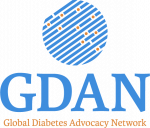
In recent years, countries worldwide have faced persistent drug shortages, posing a significant threat to patients reliant on essential medications like insulin. For individuals with diabetes, these shortages can be life-threatening, underscoring the critical need for consistent access to lifesaving drugs. Recognizing these risks, Algeria has taken a groundbreaking step by announcing the launch of its first-ever domestically produced insulin, developed by the pharmaceutical group “Biocar.”
Set to transform Algeria’s healthcare landscape, this 100% Algerian-made insulin will soon be available nationwide in pharmacies. Designed as convenient injection pens suitable for patients of all ages, this product represents a vital stride toward self-sufficiency in the country’s pharmaceutical industry. By producing insulin domestically, Algeria is not only reducing dependency on foreign suppliers but also ensuring a more stable, accessible supply of this essential medication for its population.
This development is a breakthrough for Algeria’s healthcare system, highlighting the impact that a robust, self-sufficient pharmaceutical industry can have on public health security. As more nations face growing concerns over medical supply chains, Algeria’s model offers a blueprint for ensuring that those with chronic conditions have uninterrupted access to the care they need.
Advocacy Action: Ensure Access to Essential Supplies
Are you confident that your government has measures in place to prevent critical drug shortages? Consider reaching out to your elected representative to inquire about policies and plans to secure a stable supply of essential medications for those with chronic and other illnesses. Advocacy can drive attention to the need for reliable access to medication, encouraging governments worldwide to protect their citizens’ health by prioritizing stable and self-sufficient pharmaceutical solutions.
